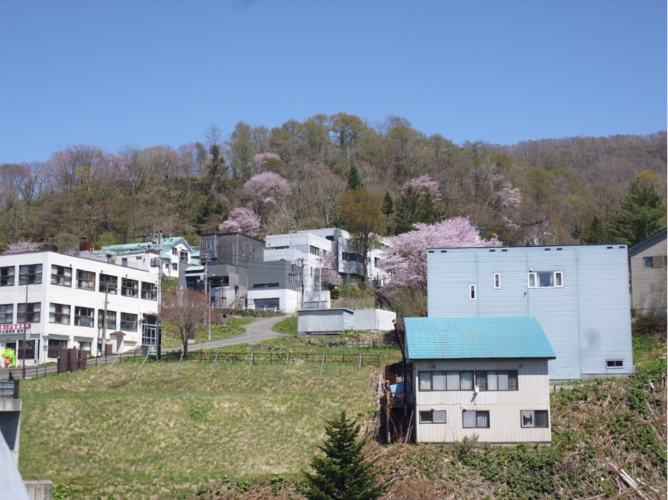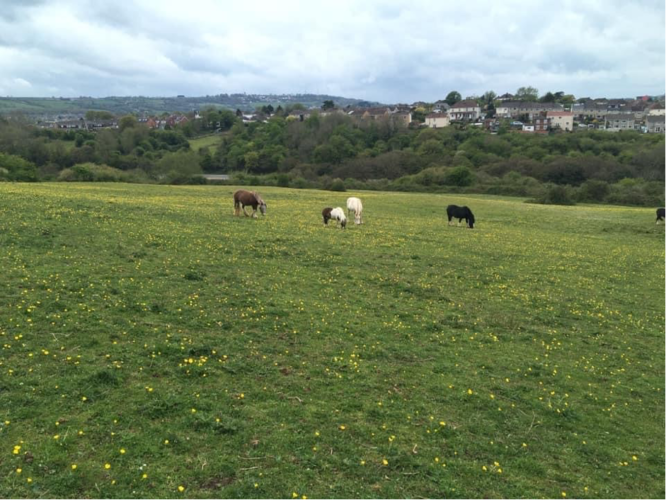Just Transition at a time of Ecological Emergency
We are living through an ecological emergency. Scientists find a sixth mass extinction is underway, pushing vertebrates to the brink. World Wildlife Fund identifies an average 69% decline in the relative abundance of monitored wildlife populations around the world between 1970 and 2018. According to UNEP, we are facing a “triple planetary crisis of climate change, nature and biodiversity loss”. While recessions and cost of living crises occupy politicians’ minds, the Secretariat for the Convention on Biological Diversity continues to try to find agreement for a new Global Framework for managing nature, including a commitment to conserve at least 30% of all land and sea areas by 2030, even though so far, worldwide agreement is slow.
This loss of species, habitats, and ecological processes requires us to commit to change, to alter our trajectories so that we can facilitate life for all species and ecosystems on Earth. One concept and strategy, increasingly influential in the context of climate change, is ‘just transition’. This umbrella term bridges labor and sustainability concerns, emphasizing the need to move towards a sustainable and net-zero society, while also recognizing the implications of a move away from carbon-intensive industries for the lived environment.
In particular, the principle of just transition accepts that change is likely to produce winners and losers, calling for an acknowledgement that even desirable changes can produce or perpetuate inequality. The principle has much to offer in helping us consider how a transition to a ‘pro-biodiversity world’ might affect people, places and habitats, and hence what a just transition in a biodiversity context might look like.
It is against this backdrop of synergy between biodiversity and climate change that a British Academy-funded project investigated the implications of applying the just transitions to biodiversity. The project team consists of Prof Antonia Layard (University of Oxford); Prof Roger Few (University of East Anglia); Dr Sophia Hatzisavvidou (University of Bath); Dr Laura de Vito (University of the West of England); Dr Leslie Mabon (Open University); Adam Marshall (University of Bristol); Dr Odirilwe Selomane (Stellenbosch University); Gilles Marciniak (Future Earth); and Hannah Moersberger (EuropaBON).
The project ran from April 2021 – September 22, focusing on three case studies: Bristol (England), Yubari (Japan) and Cape Town (South Africa). The research drew on data gathered from a survey as well as from semi-structured interviews with 22 online research participants, granted ethical approval by the Universities of Bristol and Stellenbosch. The researchers gratefully acknowledge the research participants’ generous involvement.

The project found divergent understandings of just transitions, as well as just transitions and biodiversity, across the case studies. It identified many instances of arguments in line with just transition principles, even if actors do not explicitly adopt the language of just transitions, which the project framed as ‘just transition by different labels’. The research also identified a widespread recognition that institutions should take responsibility for just transition, even though they may be constrained in their ability to act both due to a lack of resources and as a result of competing policy objectives, including calls for economic development or house-building.
Some research participants were very familiar with the term just transition, particularly in Yubari, a city experiencing a transition from extractive industries to a net zero economy:
“…we don’t just want you to phase out coal power, we want you to plan for it and do it properly. And that’s kind of the role of just transition.” (Environmental NGO, Japan)
In Cape Town, the research found less familiarity with the specific concept but did identify consistent sensitivity to the social context of biodiversity protection. One research participant outlined the context as follows, noting the legacies of inequity:
“Everyone can benefit and those that are already finding themselves in vulnerable positions able to benefit from that transition. It doesn’t make sense to have a transition that makes things worse than they are right now, you know. If you find that you have a situation where there’s high inequality. You know, by taking steps towards a just transition, it means that you have to make sure that those inequalities are eliminated, to a certain point or totally by the transition that you’re making.” (Researcher, Cape Town).
In Bristol too, the research found a consistent appreciation of the need for social equity to be taken into account. However, there was also resistance to yet another new concept. As one participant explained:
“A lot of the questions that you’ve asked, I think the way they’re framed is quite difficult to understand. When you say just transition, that to me doesn’t have anything to do with justice. I would say, why is it not called then a fair and equitable transition? I know that’s another couple of words, but so just transition for me, that doesn’t grab me […] So yeah, certainly it feels like that wording feels a bit exclusionary…” (Environmental NGO, Bristol).
Finding both awareness of “just transition” and what the project called “just transition by other labels”, attention then turned to whose responsibility it is to protect biodiversity equitably in line with principles of just transition as well as the forthcoming Global Framework.
In Cape Town, this need for an institutional structure, alive to the importance of both biodiversity protection and social equity, was widespread, as one research participant asked:
“What processes do we need to put in place for us to be able to achieve that sort of ideal state of justice as it relates to the equitable distribution of biodiversity and its ecosystem goods and services to all the people in the city, so how does everybody have access to a good amount of clean water, how does everybody have access to flood mitigation, to fire mitigation, to good soils, etc., regardless of your social economic standing.” (Public employee, Cape Town).
In Yubari, the need for a governmental approach was equally evident:
“I think that each staff member [of the local government] should acquire the ability to solve problems and be able to connect separate problems to each other, and to be able to think that if they can’t ask for a budget as usual, it’s not the end. If there is no subsidy and you couldn’t do it until now, if there are possibilities in different directions then we can think about, so not giving up and doing things slightly differently. I think that’s necessary. We have to be prepared to put energy in.” (Local government employee, Yubari)
However, there was a consistent concern throughout our case study sites that the most vulnerable people could lose out in accessing biodiversity, increasingly understood as critical to health and wellbeing:
“People in low income areas and working class areas don’t have the time, they don’t have the confidence, they don’t have the money to travel very far to experience nature, so nature literally has to be on the doorstep or they’re not going to access it. And this was some green space that was on the doorstep, it was very well used by people that were for all different reasons, you know, like you could all (be) down there and all you could hear was bees, birds.” (Local resident, Bristol)

If a just transition is to be achievable we need to consider both ecological criteria and social concerns.
These insights from research participants produced a distinction in the research, between just transitions through biodiversity and just transitions for biodiversity.
A principle of just transitions through biodiversity emphasises the potential for nature-based jobs such as conservation and ecological work to support fair and decent jobs under a just transition such as that proposed by NatureScot, alongside a call by the John Muir Trust for greater support for small farmers and crofters to adopt nature-friendly agriculture, as well as embedding biodiversity conservation within housing and infrastructure provision for rural economies.
In contrast, this research emphasised the importance of just transitions for biodiversity, acknowledging that biodiversity and nature are not solely non-human concepts, they are embedded in social relations and power dynamics. As one participant emphasised in Cape Town:
“Especially the inequalities that create a lot of problems for everyone and for everything, because people are desperate, people are hungry, people end up doing things that they are supposed to be doing because of their desperation. People stop protecting and start accumulating resources that they don’t even have a need for. Which just creates and depends on this gap between the rich and the poor and instead of sharing wealth instead of just ensuring that everyone benefits equally.” (Researcher, Cape Town).
While more critical in South Africa given the history of apartheid, legacies of land allocation are evident in all our case studies, with people living on urban peripheries who until now have been able to access biodiversity in their everyday lives, faced with planning applications for housing development that will build over their local greenspaces. This is a particularly acute concern in institutional systems where participation is often limited:
“I think there needs to be much more transparency in the system right from the beginning. People don’t even know what the local plan is. I didn’t really know what it was until recently, and people don’t realize how many sites are allocated, and how much power the council uses to build in places…we had to really engage people and help them understand what was happening, because they just didn’t even know, and some of these people don’t even have the internet. We’re still dealing with that down here. There’s just a real difference in the lives of people down here, compared to other parts of the city.” (Local resident, Bristol)
If, at a time of ecological crisis, we are to have a just transition to a new path, social equity issues must be integrated into decision-making including both procedural involvement and substantive outcomes.
Finally, the research found that in researching biodiversity and just transition, it is critical to engage with a wide range of people and places, including those outside of mainstream just transitions thinking in global networks. While the just transition ‘label’ may not always be present, many are increasingly engaged with the social context of biodiversity protection, building on long standing work in nature conservation.
Just transition may require quite fundamental conceptual reorientation at a time when the severance between environmental wellbeing and humanity needs to be repaired in Western conceptions. There is much to learn from long standing Indigenous and African understanding of interconnectedness. The African principle of Ukama, for instance, is closely related to just transition (as Swilling explains), emphasizing relatedness between people and nature as well as ancestors (in Murove’s conceptualization).
This project emphasized the need to pay attention to localities that offer rich insight into diverse just transition experiences, focusing on the relationships between biodiversity and social equity, even without adopting explicit just transition terminology.
DATE
November 23, 2022AUTHOR
Adam MarshallAntonia Layard
Gilles Marciniak
Hannah Moersberger
Laura de Vito
Leslie Mabon
Odirilwe Selomane
Roger Few
Sophia Hatzisavvidou
SHARE WITH YOUR NETWORK
RELATED POSTS
Future Earth Experts Contribute to “10 Must Knows” as a Guide to Preserving Biodiversity
IPBES Report Provides Evidence, Tools & Options to Help Governments Achieve New Global Goal on Invasive Alien Species
Future Earth at IPBES 10: Assessing Invasive Alien Species